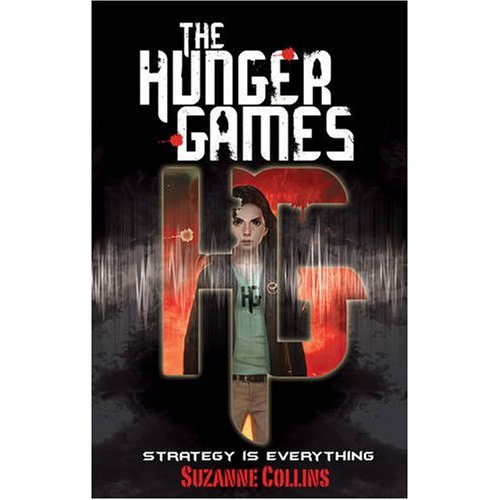 The first time I've heard of Suzanne Collins' Hunger Games trilogy was when a literature critic couldn't stop praising the books for their originality and their addictive plot on TV. So when I was at the library a few days ago and saw the first book of the series on the shelf, I just grabbed it, and I have to say the guy was so right! The book is really addictive and creative. The (German) book title makes it look like a Fantasy book, but it really doesn't have many fantasy elements. It's more like a science fiction or dystopia novel. Here is some more information from my most favourite online encyclopedia:
...
The first time I've heard of Suzanne Collins' Hunger Games trilogy was when a literature critic couldn't stop praising the books for their originality and their addictive plot on TV. So when I was at the library a few days ago and saw the first book of the series on the shelf, I just grabbed it, and I have to say the guy was so right! The book is really addictive and creative. The (German) book title makes it look like a Fantasy book, but it really doesn't have many fantasy elements. It's more like a science fiction or dystopia novel. Here is some more information from my most favourite online encyclopedia:
...
 Foreign-language novelists who have success in the American market tend to have one trait in common: a veneration of American pop culture. Stieg Larsson is fond of gangster films; Umberto Eco opines about comic books, “Starsky & Hutch” and pornography; Roberto Bolaño plumps for Mark Twain, David Lynch and “Easy Rider”; and Haruki Murakami drops the Lovin’ Spoonful, Cream, Duke Ellington, Herb Alpert, Burt Bacharach, J. D. Salinger, Raymond Carver and several thousand other proper nouns.
It would appear that Ryu Murakami has cracked the formula. Born in 1952, he is Haruki Murakami’s contemporary (though not kin), a child of the ’60s with an unabashed affection for American rock music, jazz and sitcoms. His autobiographical novel, “69,” is about a student uprising he led during high school inspired by the Beats, Eldridge Cleaver and the lyrics of Lou Reed.
But the target of his rebellion was the United States naval base that occupied Sasebo, the western Japanese port city in which he grew up. And his first novel, “Almost Transparent Blue” (1976), which has sold more than two million copies in Japan, is about the violent, seedy underworld that panders to the desires of the occupying American soldiers. ...
Foreign-language novelists who have success in the American market tend to have one trait in common: a veneration of American pop culture. Stieg Larsson is fond of gangster films; Umberto Eco opines about comic books, “Starsky & Hutch” and pornography; Roberto Bolaño plumps for Mark Twain, David Lynch and “Easy Rider”; and Haruki Murakami drops the Lovin’ Spoonful, Cream, Duke Ellington, Herb Alpert, Burt Bacharach, J. D. Salinger, Raymond Carver and several thousand other proper nouns.
It would appear that Ryu Murakami has cracked the formula. Born in 1952, he is Haruki Murakami’s contemporary (though not kin), a child of the ’60s with an unabashed affection for American rock music, jazz and sitcoms. His autobiographical novel, “69,” is about a student uprising he led during high school inspired by the Beats, Eldridge Cleaver and the lyrics of Lou Reed.
But the target of his rebellion was the United States naval base that occupied Sasebo, the western Japanese port city in which he grew up. And his first novel, “Almost Transparent Blue” (1976), which has sold more than two million copies in Japan, is about the violent, seedy underworld that panders to the desires of the occupying American soldiers. ...